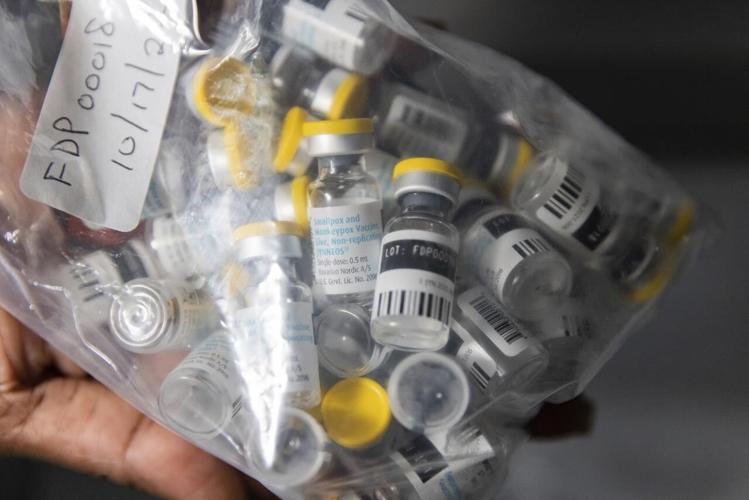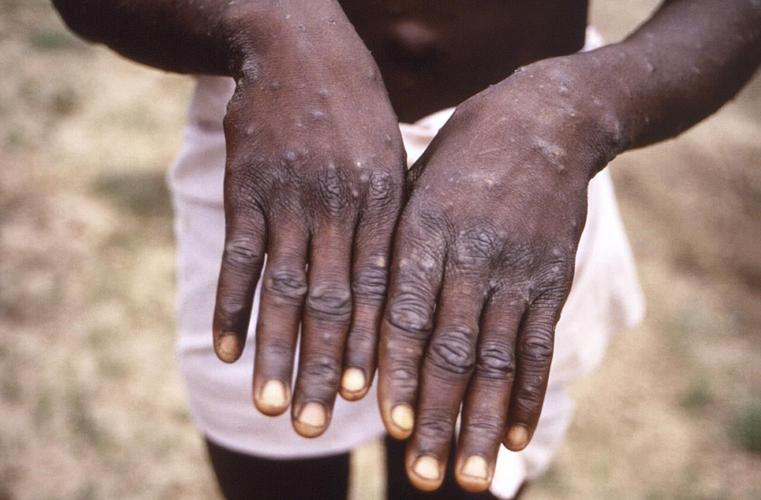KINSHASA, Congo (AP) — As Congo copes with its biggest outbreak of mpox, scientists warn discrimination against gay and bisexual men on the continent could make it worse.
In November, the World Health Organization reported that mpox, also known as monkeypox, was being spread via sex in Congo for the first time. That is a significant departure from previous flare-ups, where the virus mainly sickened people in contact with diseased animals.
Mpox has been in parts of central and west Africa for decades, but it was not until 2022 that it was documented to spread via sex; most of the 91,00 people infected in approximately 100 countries that year were gay or bisexual men.
In Africa, unwillingness to report symptoms could drive the outbreak underground, said Dimie Ogoina, an infectious diseases specialist at the Niger Delta University in Nigeria.
“It could be that because homosexuality is prohibited by law in most parts of Africa, many people do not come forward if they think they have been infected with mpox,” Ogoina said.
WHO officials said they identified the first sexually transmitted cases of the more severe type of mpox in Congo last spring, shortly after a resident of Belgium who “identified himself as a man who has sexual relations with other men” arrived in Kinshasa, the Congolese capital. The U.N. health agency said five other people who had sexual contact with the man later became infected with mpox.
“We have been underestimating the potential of sexual transmission of mpox in Africa for years,” said Ogoina, who with his colleagues, first reported in 2019 that mpox might be spreading via sex.
Gaps in monitoring make it a challenge to estimate how many mpox cases are linked to sex, he said. Still, most cases of mpox in Nigeria involve people with no known contact with animals, he noted.
You might be interested in
In Congo, there have been about 13,350 suspected cases of mpox, including 607 deaths through the end of November with only about 10% of cases confirmed by laboratories. But how many infections were spread through sex isn't clear. WHO said about 70% of cases are in children under 15.
During a recent trip to Congo to assess the outbreak, WHO officials found there was “no awareness” among health workers that mpox could be spread sexually, resulting in missed cases.
WHO said health authorities had confirmed sexual transmission of mpox “between male partners and simultaneously through heterosexual transmission” in different parts of the country.
Mpox typically causes symptoms including a fever, skin rash, lesions and muscle soreness for up to one month. It is spread via close contact and most people recover without needing medical treatment.
During the 2022 major international outbreak, mass vaccination programs were undertaken in some countries, including Canada, Britain and the U.S., and targeted those at highest risk — gay and bisexual men. But experts say that's not likely to work in Africa for several reasons, including the stigma against gay communities.
“I don’t think we’ll see the same clamoring for vaccines in Africa that we saw in the West last year,” said Dr. Boghuma Titanji, an assistant professor of medicine in infectious diseases at Emory University School of Medicine in Atlanta.
She said that the gay and bisexual men most at risk of mpox might be fearful of coming forward in a broad immunization program. Countries should work on ways to give the shots —if available — in a way that wouldn't stigmatize them, she said.
Dr. Jean-Jacques Muyemba, general director of Congo’s National Institute of Biomedical Research, said two provinces in Congo had reported clusters of mpox spread through sex, a concerning development.
There's no licensed vaccine in Congo, and it would be hard to get enough shots for any large-scale program, Muyemba said. The country is trying to get a Japanese mpox vaccine, but regulatory issues are complicating the situation, he said.
Globally, only one vaccine has been authorized against mpox, made by Denmark’s Bavarian Nordic. Supplies are very limited and even if they were available, they would have to be approved by the African countries using them or by WHO. To date, the vaccine has only been available in Congo through research.
Oyewale Tomori, a Nigerian virus expert who sits on several WHO advisory boards, said African governments probably have too many competing priorities to ask the U.N. health agency or donors for help securing vaccines.
“In Africa, mpox is most likely considered a low-priority nuisance,” Tomori said.
He said stronger monitoring, laboratory networks and better availability of diagnostic supplies would be more helpful to the continent than vaccines.
Without greater efforts to stop the outbreaks in Africa, Ogoina predicted that mpox would continue to infect new populations, warning that the disease could also spark outbreaks in other countries, similar to the global emergency WHO declared last year.
“When the HIV pandemic started, it was among gay and bisexual men in the global north, and Africa thought it was not our problem,” he said. “Before we knew it, it came to Africa, but we still thought heterosexual populations would be protected.”
Women of reproductive age now account for more than 60% of new HIV infections in Africa.
“I worry the same thing will now happen with mpox,” he said. “Unless we address these outbreaks in Africa, this virus will keep coming back.”
____
Cheng reported from Toronto.
___
The Associated Press Health and Science Department receives support from the Howard Hughes Medical Institute’s Science and Educational Media Group. The AP is solely responsible for all content.

















Anyone can read Conversations, but to contribute, you should be a registered Torstar account holder. If you do not yet have a Torstar account, you can create one now (it is free).
To join the conversation set a first and last name in your user profile.
Sign in or register for free to join the Conversation